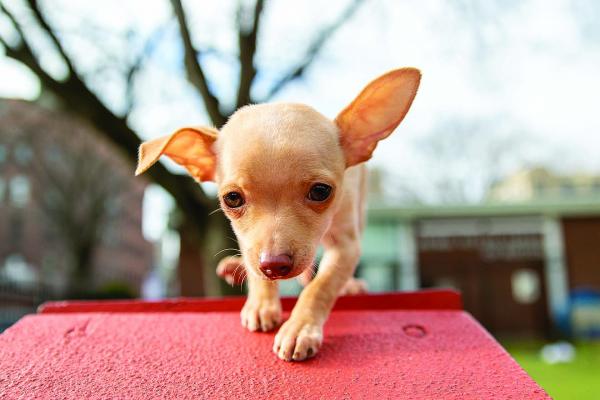May 14, 2020

Sydney (above) is a Chihuahua, the smallest breed of dog, named after the Mexican state of Chihuahua.
Over the last several months, we have all been inundated with ever-evolving information, statistics, and restrictions to keep ourselves, family, friends, and community safe and healthy. But from the point of view of a veterinarian and newly appointed president & CEO of the Animal Rescue League of Boston (ARL), I believe one important segment within our community has largely been ignored – our pet population.
So, when the CDC and USDA recently announced that two pet cats in New York tested positive for SARS-CoV-2 (the virus that causes COVID-19) and a dog in North Carolina also tested positive, I was not surprised when ARL received a number of phone calls from nervous pet owners wanting to know if they could contract COVID-19 from their pet.
When it comes to the COVID-19 pandemic, it is important to focus on scientific facts, not opinions or speculations, which is why I feel compelled to share important information about pets and COVID-19.
First and foremost, public health officials are still learning about COVID-19 and while cats and dogs are susceptible to coronavirus, there is no evidence that pets can pass the virus onto another animal or humans.
There are still many unknowns about this virus, but ARL concurs with, and recommends that pet owners adhere to the following CDC recommendations to keep animals safe:
• Do not let pets interact with people or other animals outside the home;
• Keep cats indoors, when possible, to prevent them from encountering other animals and people;
• Walk dogs on a leash, maintaining at least 6 feet from other animals or people;
• Avoid dog parks or public spaces where people and animals may gather.
For pet owners who are presumed to carry the illness or who have already tested positive for the virus, the CDC recommends that you:
• Have another member of your household care for your pets while you are sick, when possible;
• Avoid contact with your pet, including petting, snuggling, being kissed or licked, and sharing food or bedding; and
• If you must care for your pet or be around animals while you are sick, wear a cloth face mask and wash your hands before and after you interact with them.
By practicing good hygiene, social distancing, and other precautions, you, along with your pets, will have a lower risk of infection.
Be safe and stay well.
Dr. Edward Schettino is the president of the Animal Rescue League of Boston, and has a PhD in Immunology and Veterinary Medicine (DVM). Pet questions? Email ARL at press@arlboston.org.


